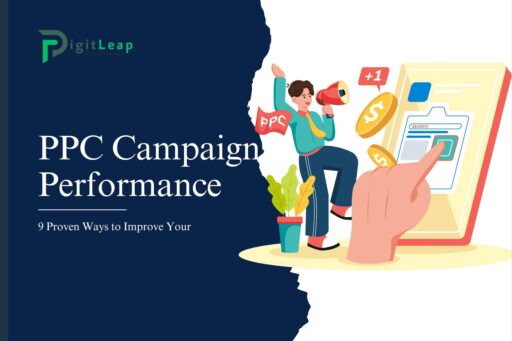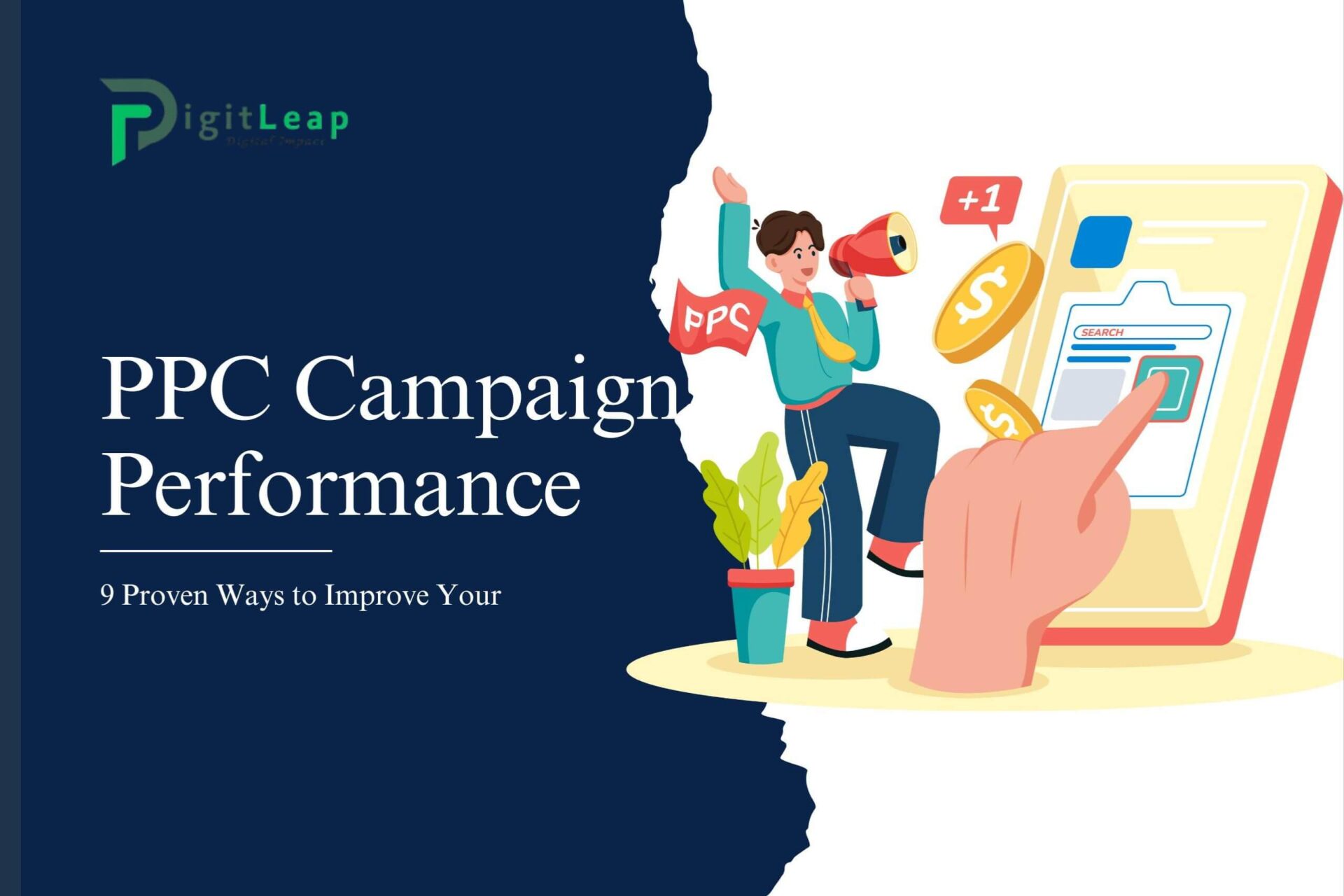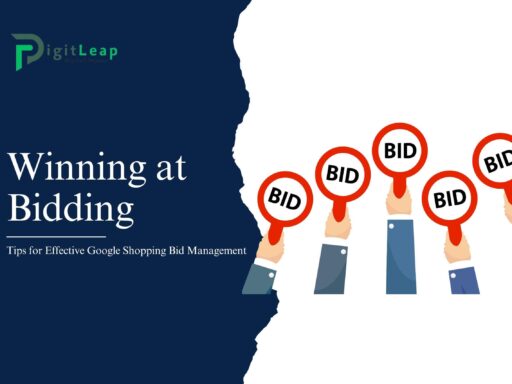9 Proven Ways to Improve Your PPC Campaign Performance
Running a Pay-Per-Click (PPC) campaign can be one of the most effective ways to drive traffic and conversions, but if you’re not seeing the results you hoped for, it may be time to fine-tune your strategy. Whether you’re using Google Ads, Bing Ads, or another platform, improving your PPC performance involves optimizing everything from keywords to ad copy and targeting. To help you make the most of your investment, here are 9 proven ways to improve your PPC campaign performance.
1. Optimize Your Keyword Selection
Keywords are the foundation of any PPC campaign, so choosing the right ones is critical. Make sure you’re targeting a mix of broad, phrase, and exact match keywords. Broad match gives you a wider reach, while phrase and exact match keywords can help you attract more qualified traffic.
It’s also essential to focus on long-tail keywords, which tend to have lower competition and a higher conversion rate. For example, instead of targeting a broad term like “shoes,” you might opt for a more specific phrase like “men’s running shoes size 10.”
2. Use Negative Keywords
Many advertisers overlook the importance of negative keywords, which help prevent your ads from showing up in irrelevant searches. Negative keywords filter out unwanted traffic, ensuring you’re not wasting money on clicks that aren’t likely to convert.
For example, if you’re selling high-end products, you might add terms like “cheap” or “free” as negative keywords to avoid attracting users who are looking for low-cost alternatives.
3. Write Compelling Ad Copy
Your ad copy is the first impression a potential customer gets, so it needs to be clear, concise, and compelling. Focus on highlighting the benefits of your product or service, and include a strong call to action (CTA) to encourage users to click. Phrases like “Shop Now,” “Get a Free Quote,” or “Try for Free” can help boost your click-through rate (CTR).
Don’t forget to emphasize what sets you apart from competitors—whether it’s your pricing, quality, or unique features—and include your keywords in the headlines to make your ad more relevant to search queries.
4. Leverage Ad Extensions
Ad extensions are a powerful way to enhance your PPC ads by providing additional information and increasing visibility. Google offers several types of ad extensions, including:
- Sitelink extensions: Direct users to specific pages on your website.
- Callout extensions: Highlight special offers or features, such as free shipping or 24/7 support.
- Location extensions: Show your business’s address to users in the area.
Using ad extensions can improve your ad’s performance by making it more informative and clickable, and Google rewards ads with higher engagement by giving them better placements.
5. Test Different Ad Variations
A key part of optimizing your PPC campaign is A/B testing your ads. Run multiple versions of your ads with slight variations in headlines, descriptions, or CTAs to see which one performs better. Testing different approaches helps you understand what resonates most with your audience and what drives the highest CTR and conversions.
For example, you could try two versions of a headline—one focused on price, like “Affordable Prices on Men’s Shoes,” and another focused on quality, like “Top-Quality Men’s Shoes for Every Occasion.” See which angle attracts more clicks and refine your campaign accordingly.
6. Target the Right Audience
To improve your PPC performance, it’s essential to target the right audience. Take advantage of audience targeting options to reach users who are more likely to convert. Google Ads and other platforms allow you to target based on:
- Demographics: Age, gender, household income.
- Interests: Users who have shown interest in topics relevant to your product or service.
- Location: Focus on areas where your target customers are located.
By narrowing down your audience, you ensure that your ads are reaching people who are more likely to be interested in what you offer, which can lead to higher conversion rates.
7. Monitor and Adjust Your Bids
Managing your bidding strategy is essential for optimizing PPC performance. Instead of setting a bid and forgetting about it, regularly review how your keywords and ads are performing, and adjust your bids accordingly. If certain keywords are driving conversions, consider raising your bid for those terms to increase visibility.
Similarly, for keywords that aren’t performing well, you can lower the bid or pause them altogether. Automated bidding strategies like Target CPA (Cost-Per-Acquisition) or Maximize Conversions can also help Google adjust your bids in real time to drive the best possible results.
8. Use Remarketing to Re-Engage Visitors
Not everyone who clicks on your ad will convert right away. With remarketing, you can target users who have previously visited your website but didn’t take the desired action. Remarketing ads serve as reminders, encouraging users to return and complete their purchase or sign up.
By creating a remarketing audience in Google Ads, you can display targeted ads to those users as they browse other websites or social media platforms. These ads are particularly effective because they engage users who have already shown interest in your product or service, increasing the likelihood of conversion.
9. Analyze and Optimize Your Landing Pages
Your PPC ads may drive traffic to your site, but if your landing page isn’t optimized, you could be losing conversions. Make sure your landing pages are relevant to the ads and provide a seamless user experience. A well-optimized landing page should include:
- A clear headline that matches the user’s intent.
- A strong CTA that encourages users to take the next step.
- Fast loading times to prevent users from bouncing.
- Easy-to-navigate design, especially for mobile users.
By regularly reviewing and optimizing your landing pages, you can ensure that visitors are more likely to convert once they click through from your ad.
Conclusion
Improving your PPC campaign performance is all about refining your approach, testing new strategies, and closely monitoring results. From optimizing your keywords to leveraging audience targeting and remarketing, there are plenty of ways to boost your campaign’s effectiveness. By applying these proven tips, you can ensure that your PPC efforts are driving better results and a higher return on investment.
At DigitLeap, we specialize in helping businesses improve their PPC campaigns through smart strategies and continuous optimization. Let us help you take your digital marketing to the next level and achieve the success you’re looking for.






